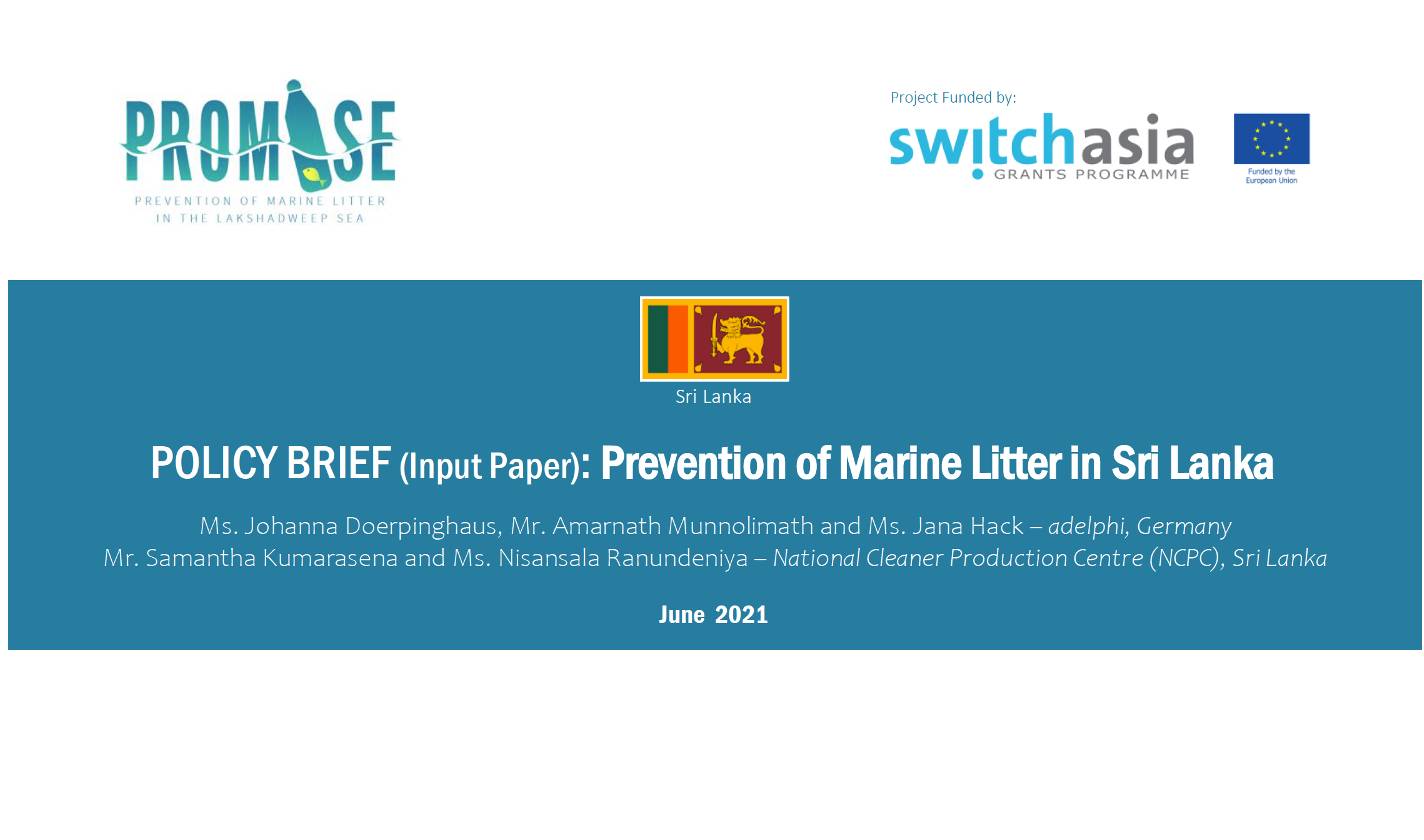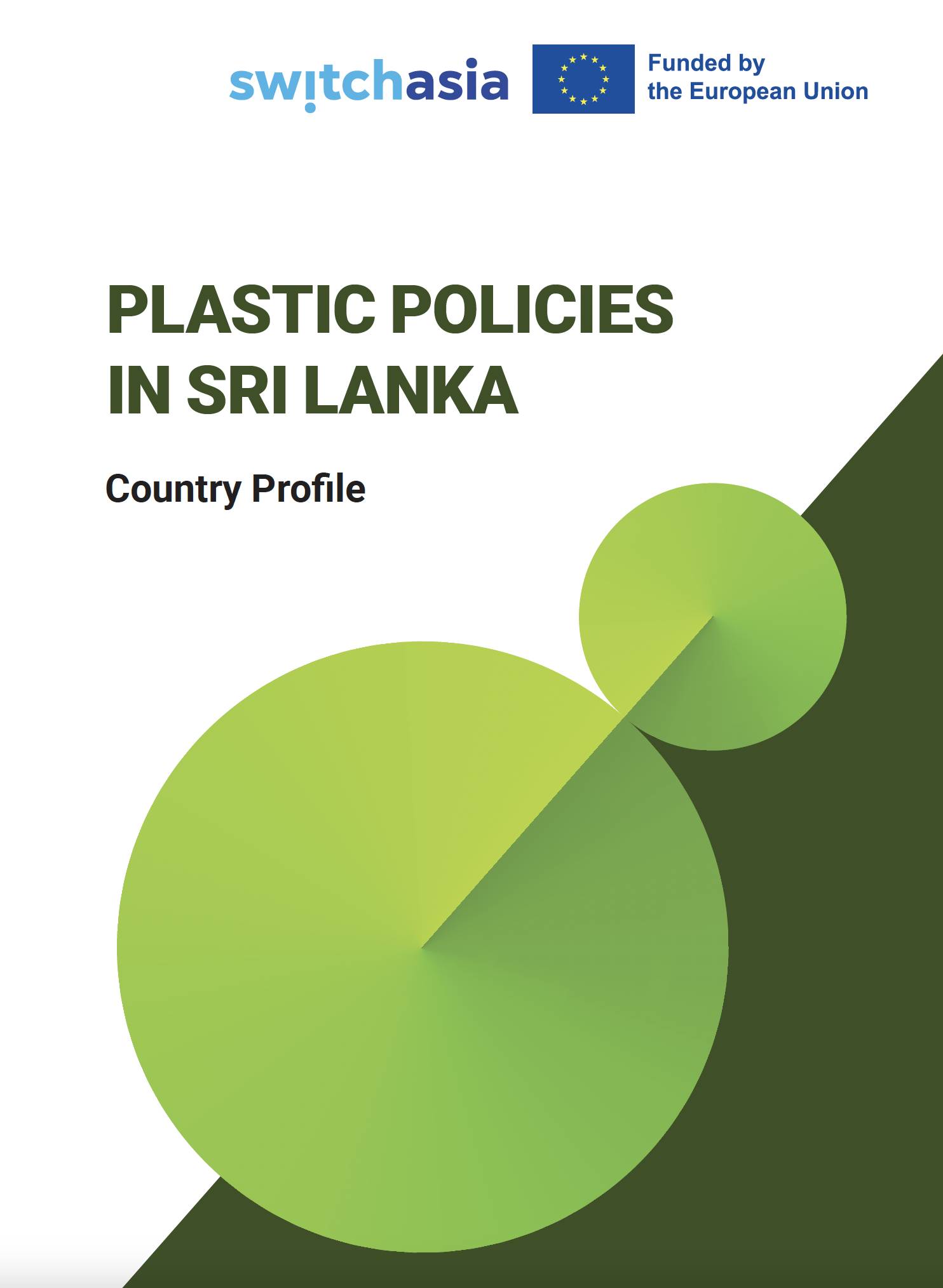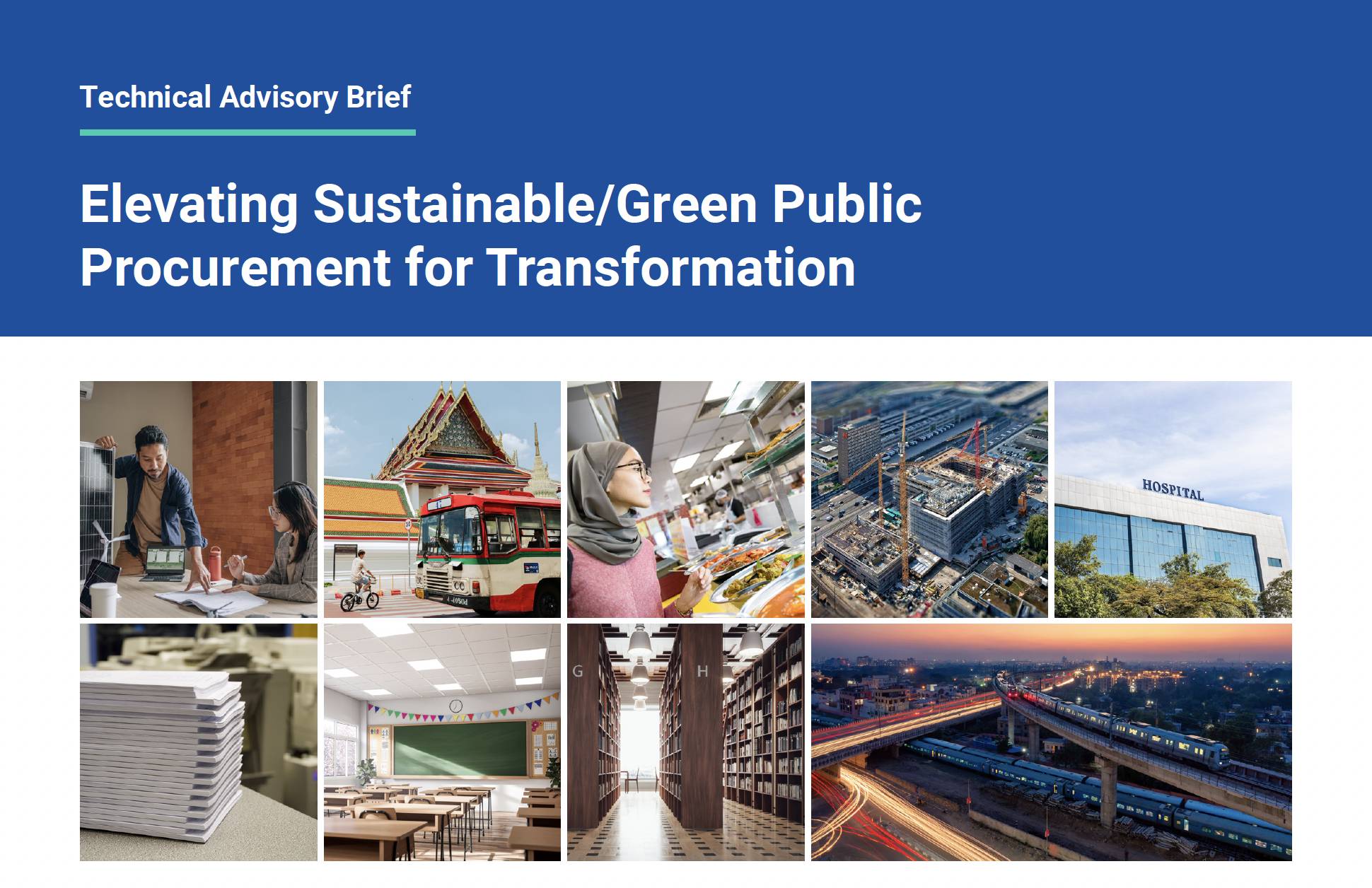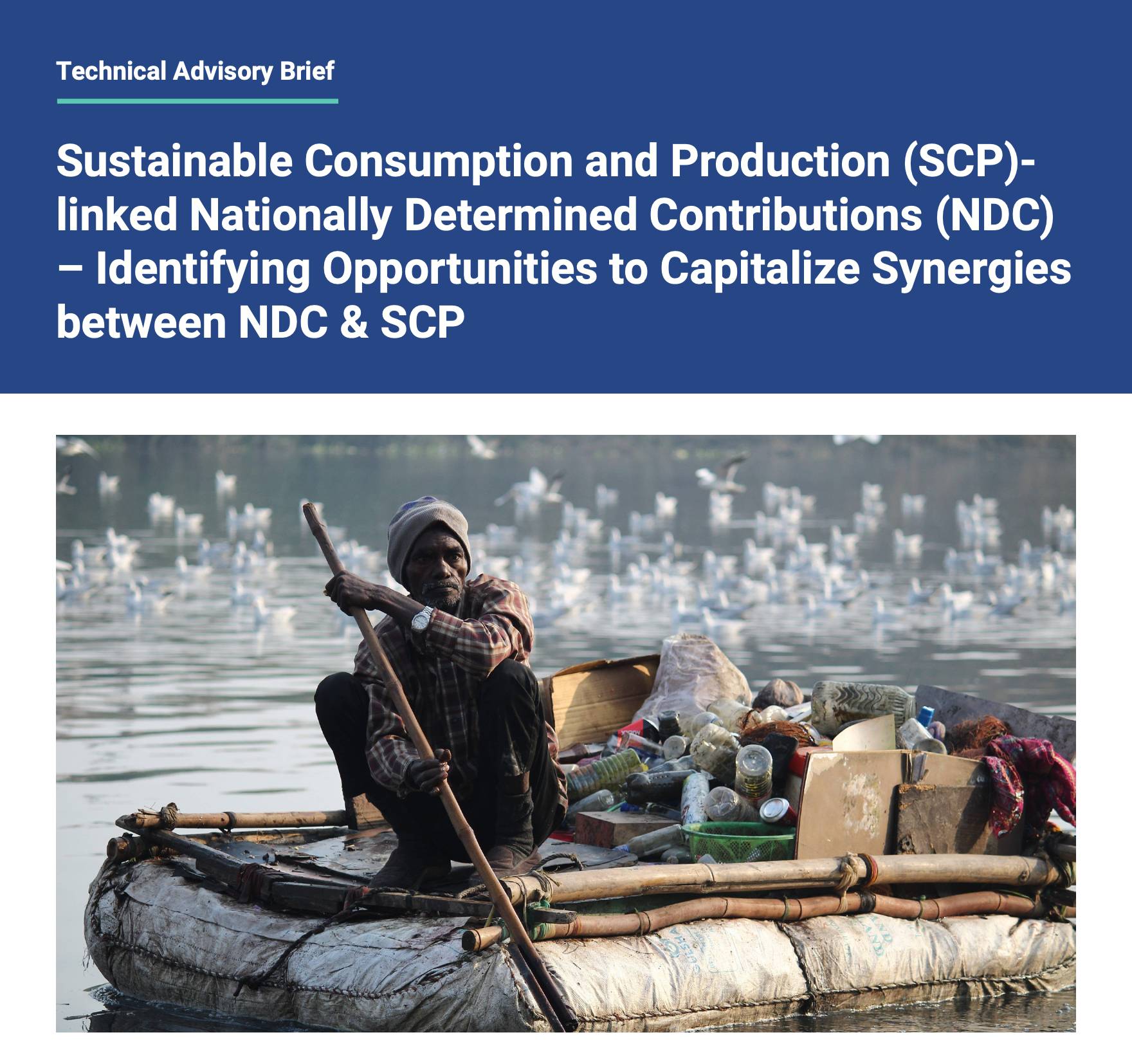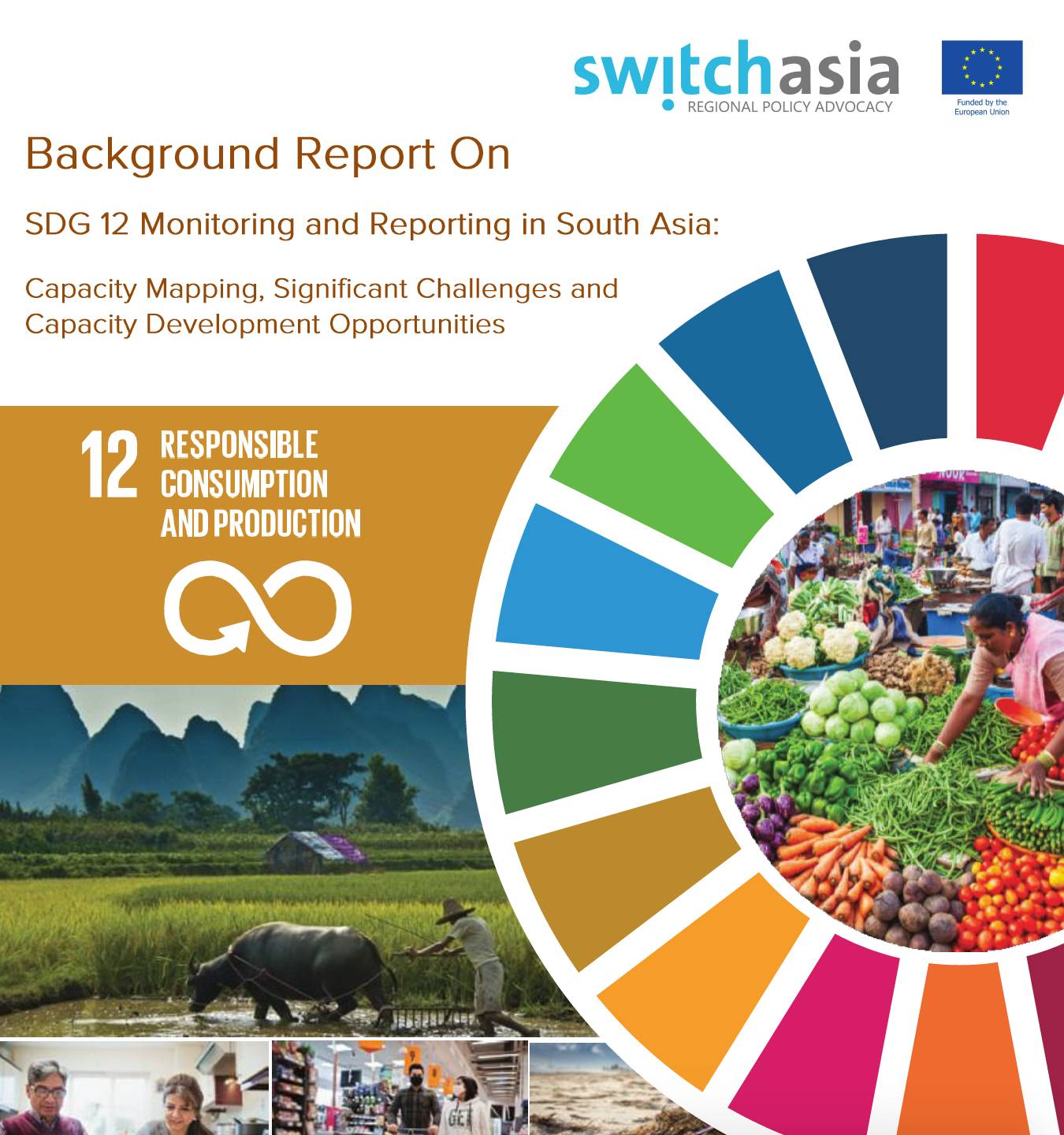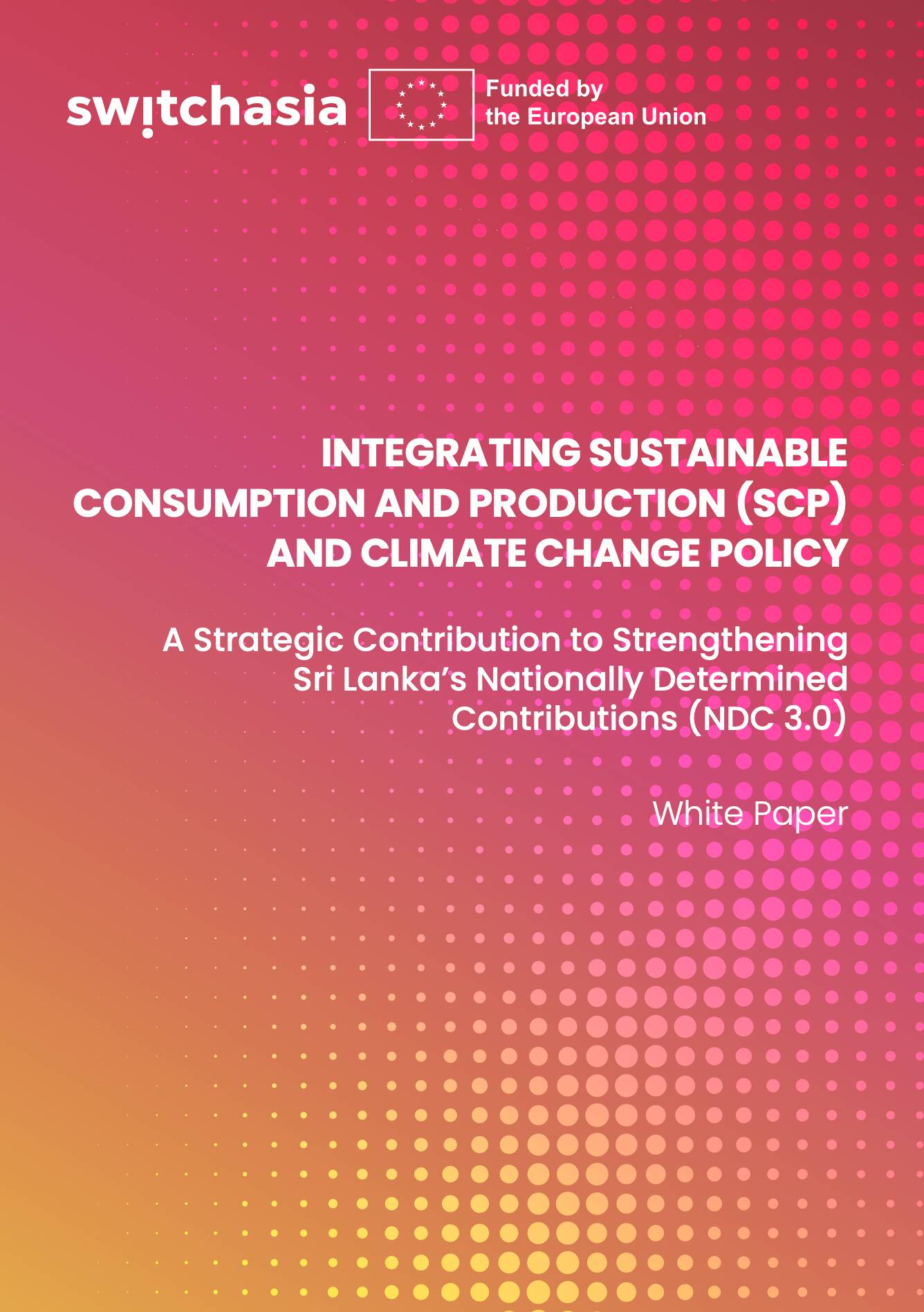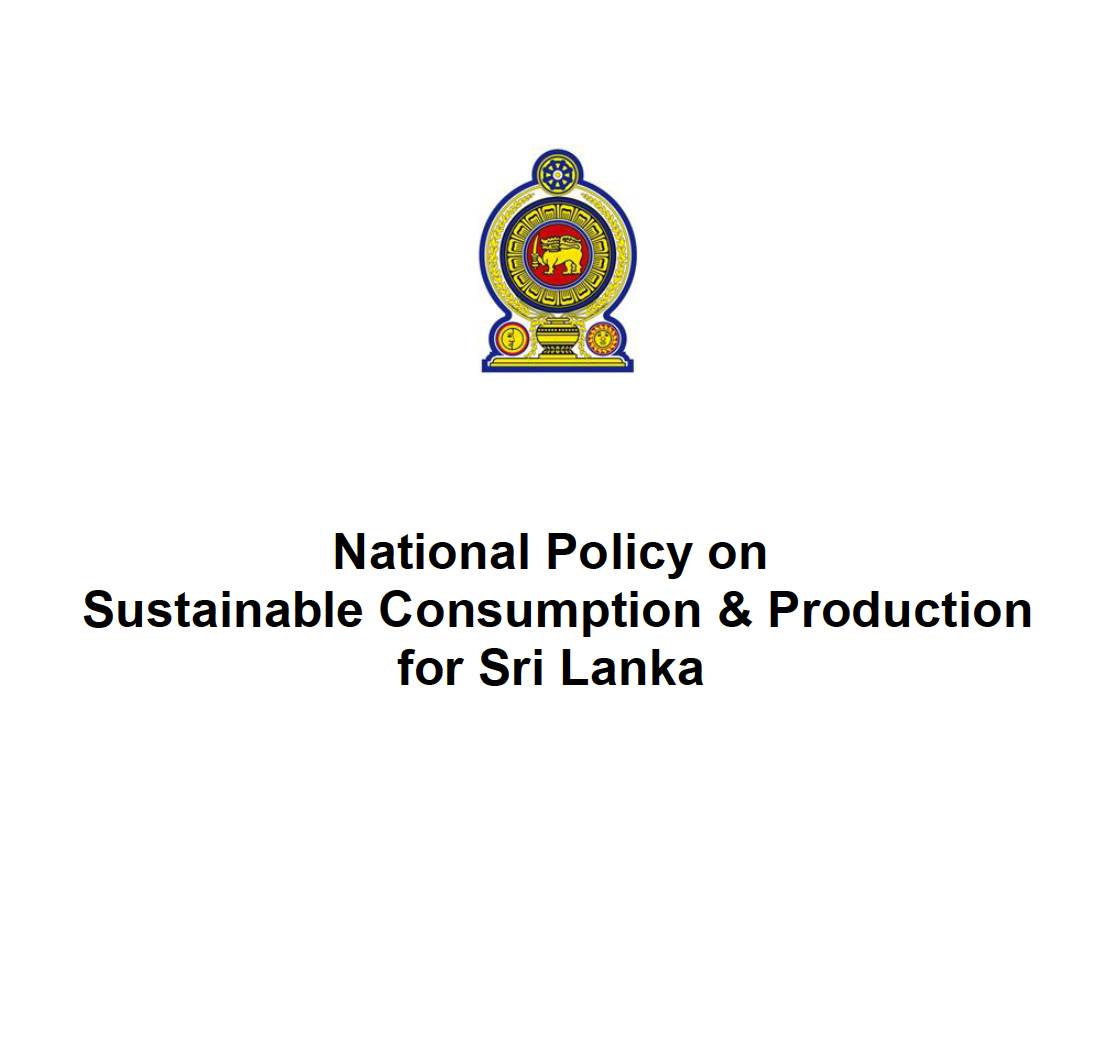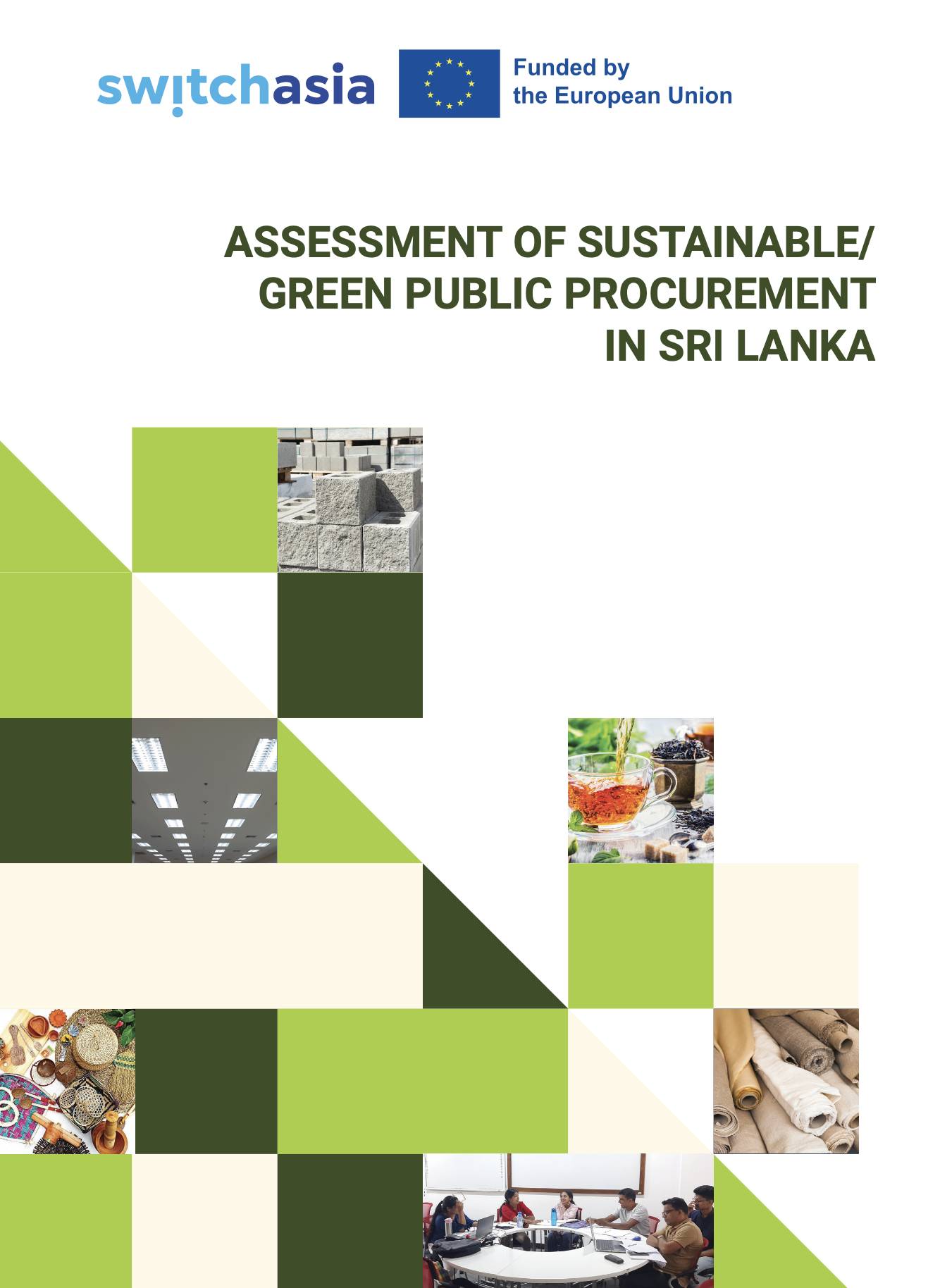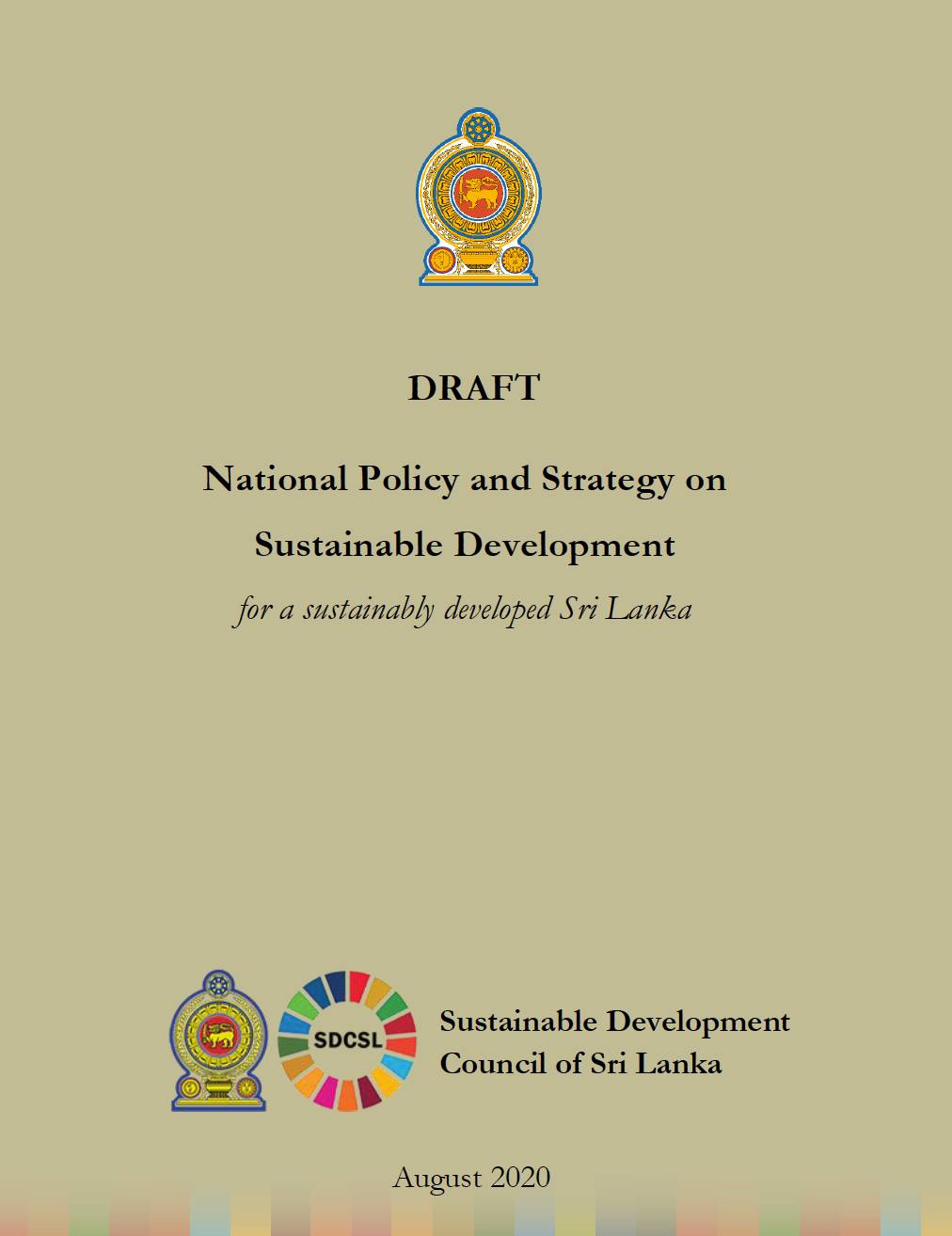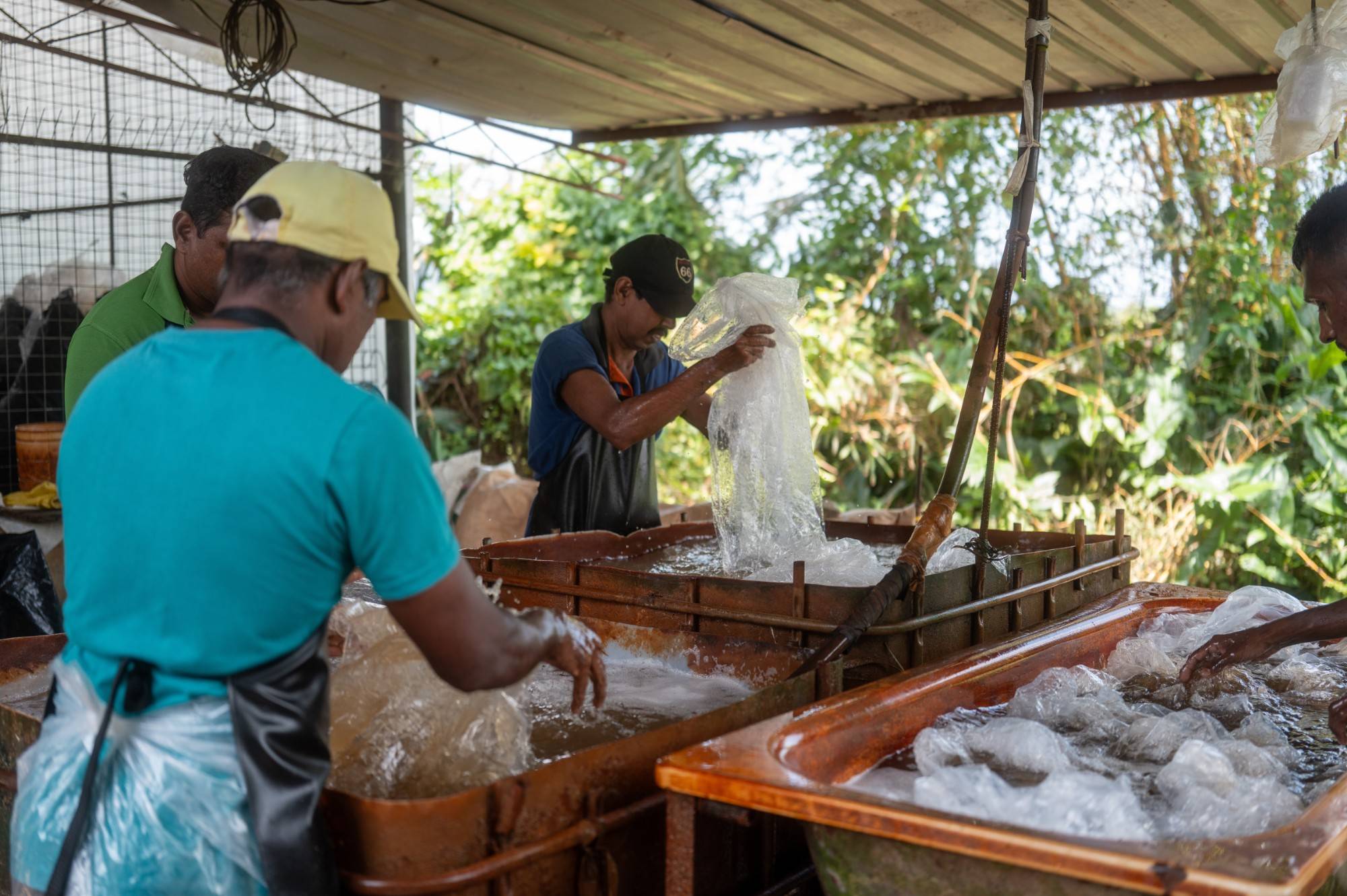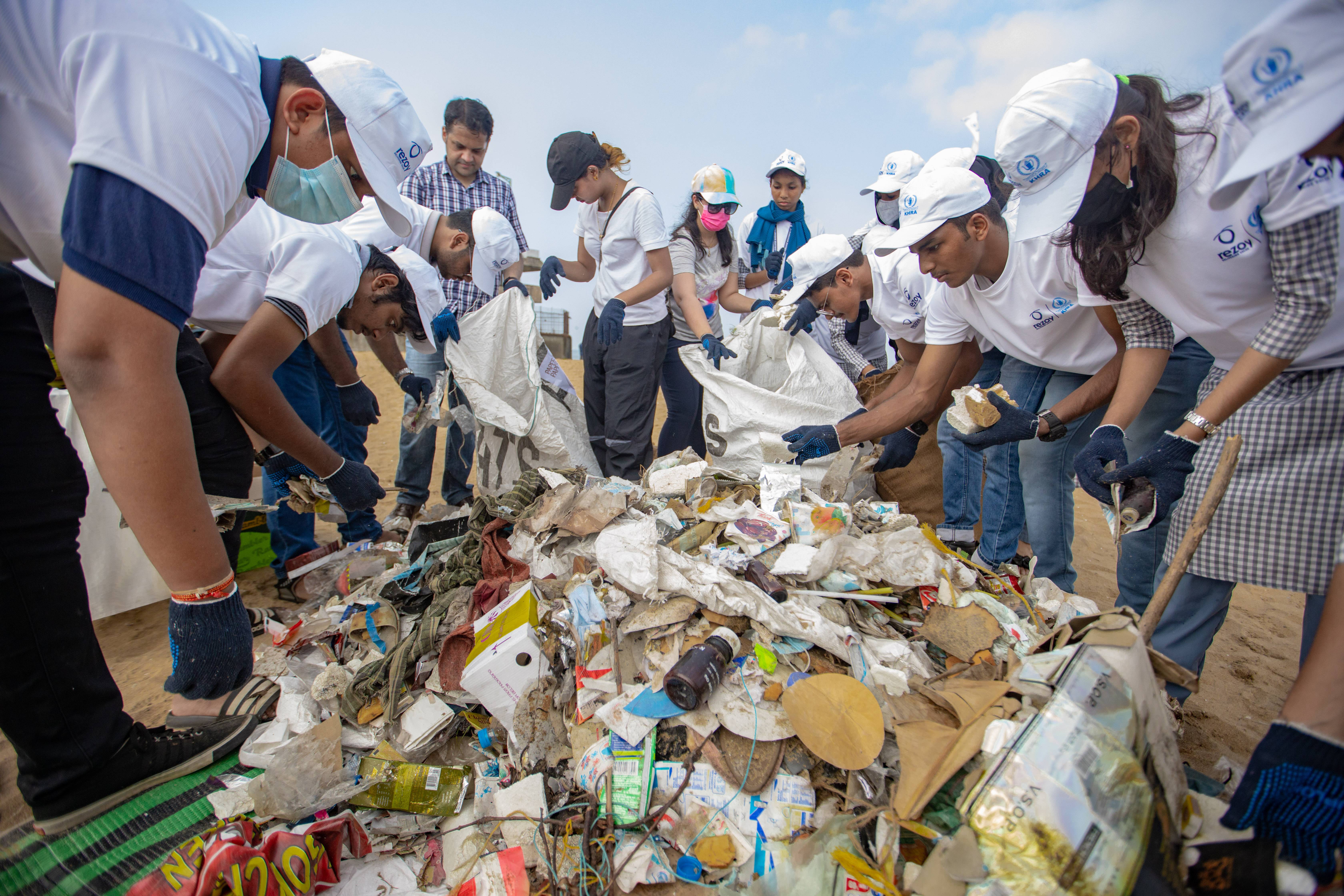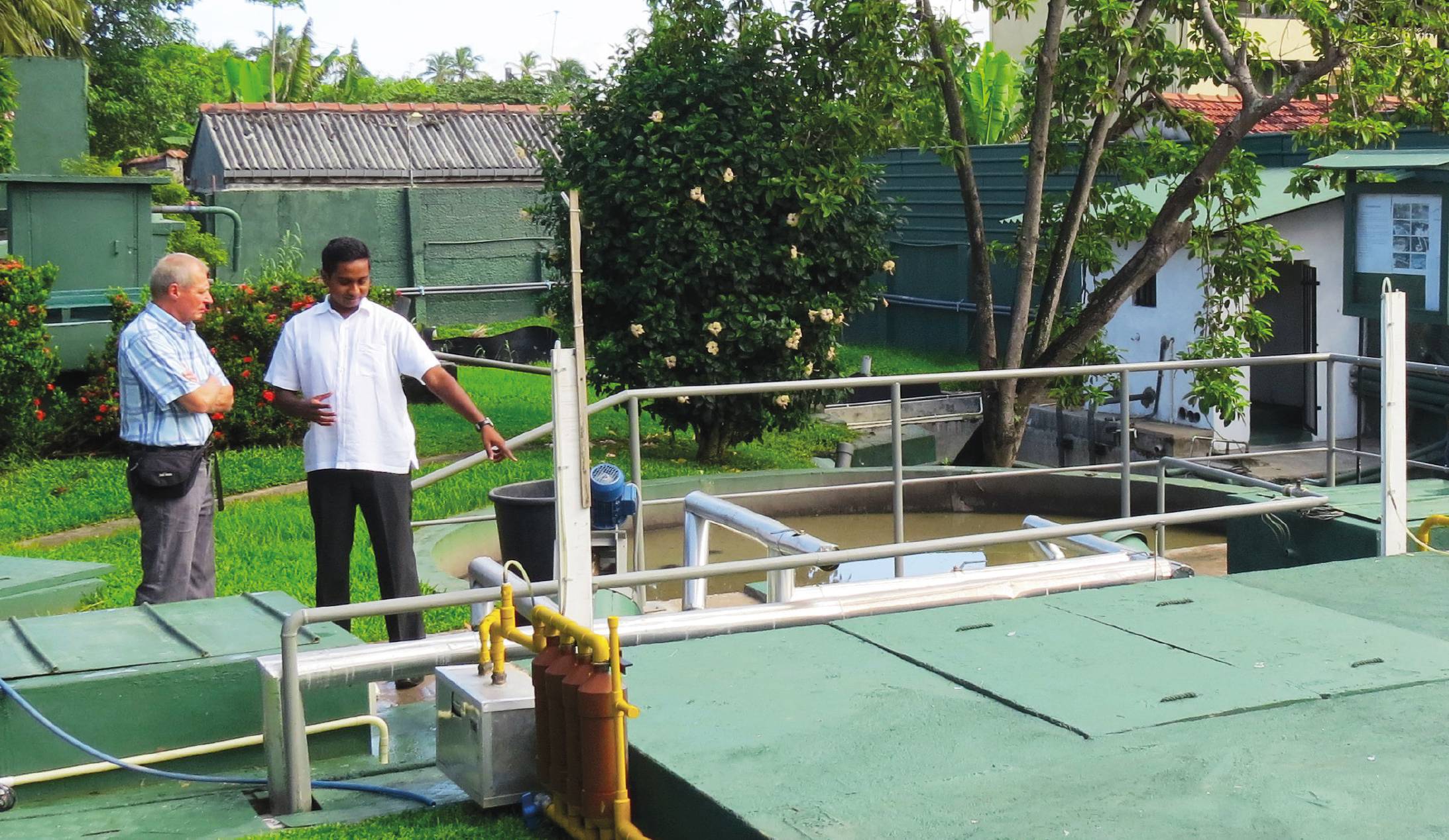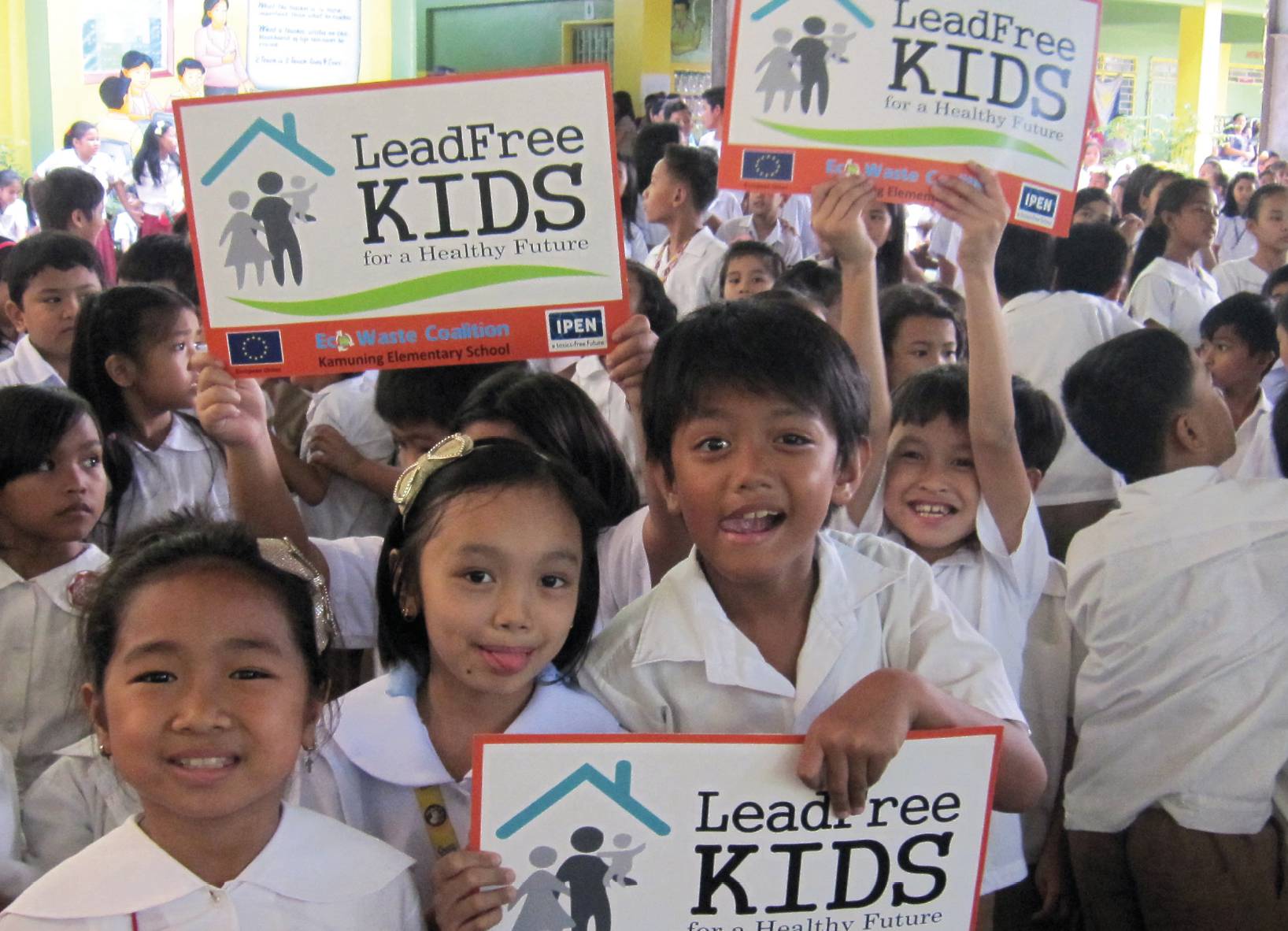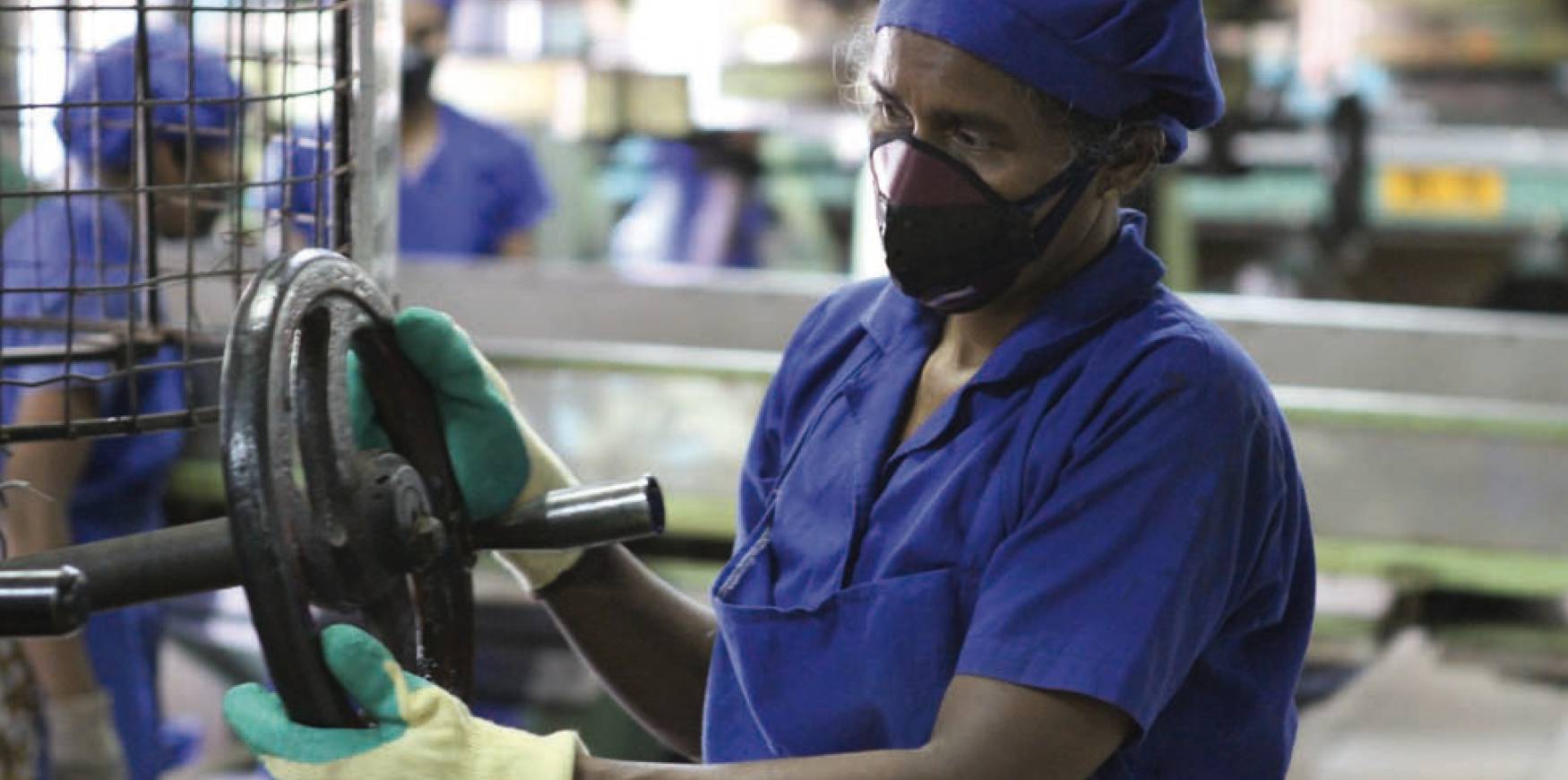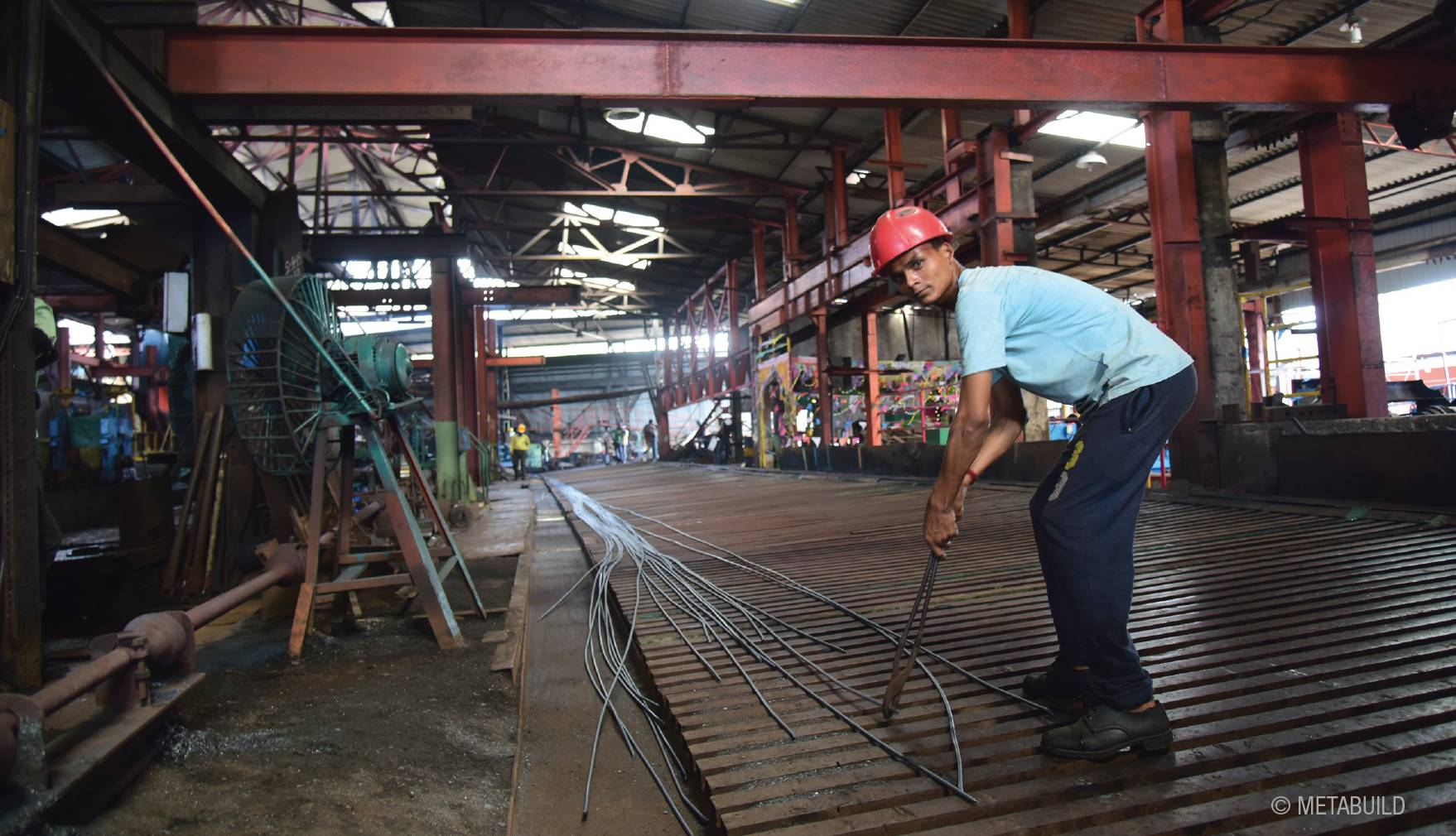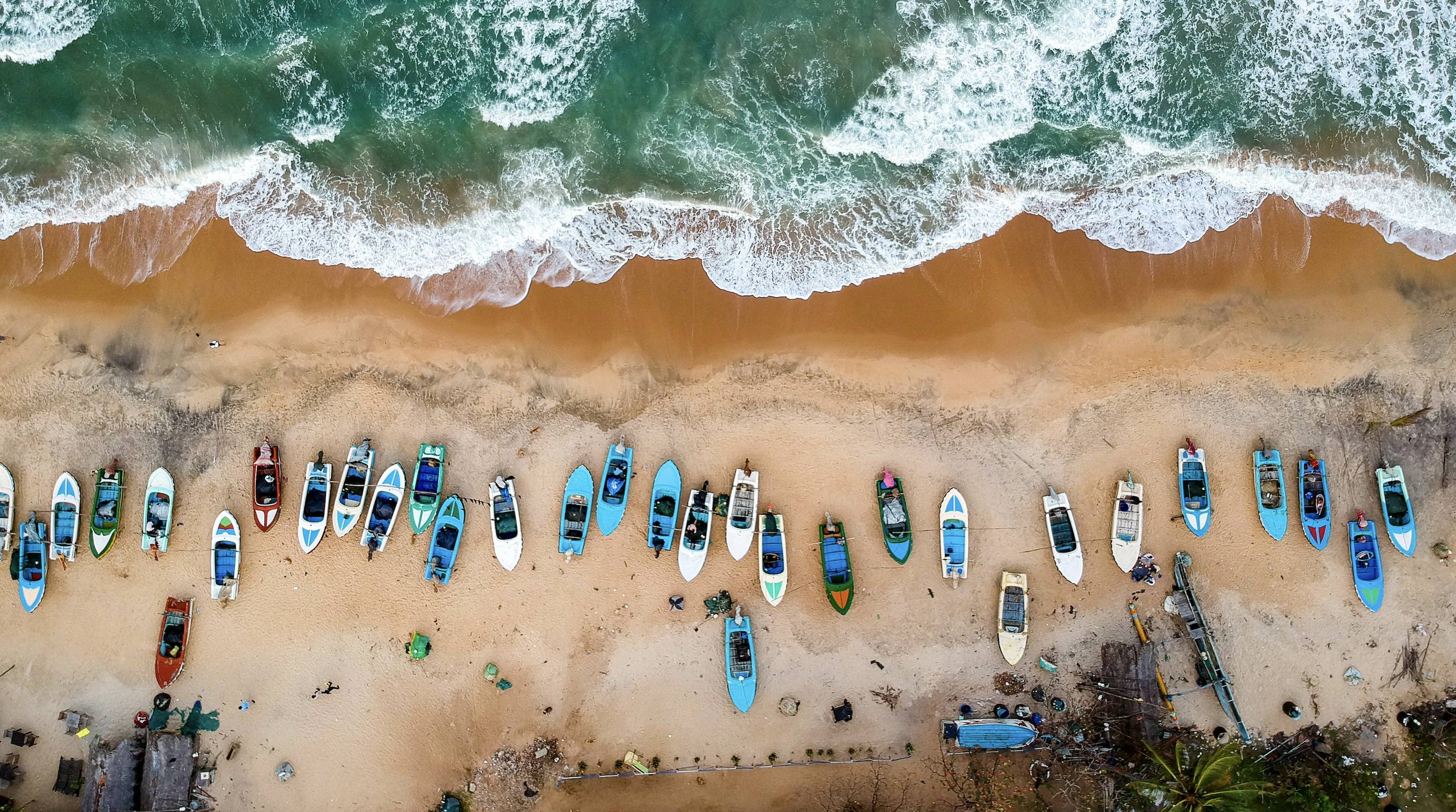
National SCP Context
The current national policy strategy, A Thriving Nation, A Beautiful Life[1], outlines the government’s vision for a prosperous and sustainable Sri Lanka. Complementing this, the National Policy on Sustainable Consumption and Production[2] establishes the primary framework for promoting resource efficiency, life-cycle approaches, and sustainable production and consumption in Sri Lanka. These efforts are reinforced by the National Policy on Waste Management[3] and the National Action Plan on Plastic Waste Management 2021–2030[4], which emphasize waste reduction, recycling, and circular practices. Additionally, the National Policy on Green Procurement[5] and the National Environment Policy[6] support the integration of environmental and circular economy principles across sectors, including public procurement and industrial operations.
Connection to the Global Agenda
Sri Lanka has engaged with the United Nations High-Level Political Forum through the submission of Voluntary National Reviews in 2018[7] and 2022[8], highlighting national efforts to advance the Sustainable Development Goals (SDGs). The country has strengthened the integration of SDGs into national policies through the Sustainable Sri Lanka 2030 Vision, the current government’s policy strategy A Thriving Nation, A Beautiful Life, and the Climate Prosperity Plan (CPP)[9], which is currently being updated by the Ministry of Finance. These frameworks guide the alignment of national development priorities with global sustainability objectives. The VNR process was coordinated by a national steering committee, including representatives from the Sustainable Development Council of Sri Lanka (SDCSL), ensuring multi-stakeholder engagement and monitoring of progress toward the SDGs.
A key solution to Climate Change
Sri Lanka’s climate action is guided by a comprehensive policy framework that emphasizes both mitigation and adaptation. The National Climate Change Policy 2023[10] provides an overarching framework for low-carbon development, climate resilience, and sectoral coordination. Complementing this, the National Environmental Action Plan 2022–2030[11] includes strategies related to circular economy and sustainable consumption and production, further supporting integrated climate and resource efficiency approaches. The country focuses on six priority sectors: electricity, transport, industry, waste, forestry, and agriculture, with strategies to enhance resilience, reduce emissions, and strengthen adaptive capacity. Sri Lanka’s Updated Nationally Determined Contribution (NDC 3.0)[12] sets an unconditional target of 8.11% greenhouse gas emissions reduction by 2030 compared to a Business-As-Usual scenario, with an additional 11.98% reduction conditional on international support. For long-term climate goals, the country has developed the Carbon Net Zero 2050 Roadmap[13], which incorporates the Clean Net Zero Roadmap, outlining sector-specific pathways, capacity-building measures, and investment guidance to achieve net-zero emissions by 2050.
Priority sectors for Sustainable Consumption and Production
- Promoting source-to-sea solutions in coastal and tourism clusters to reduce marine litter and plastic leakage along Sri Lanka’s shorelines.4
- Strengthening food processing and packaging systems by reducing food loss and waste, improving packaging recyclability, and finding alternatives to single-use plastics for a more circular and sustainable food value chain.[14]
- Advancing circular practices in the textile and apparel sector by promoting reuse, recycling, and eco-design, while fostering sustainable transformation through addressing industry challenges and opportunities.[15]
- Promoting circular practices in construction by reusing waste, adopting eco-friendly materials, and supporting the transition of industrial parks into Eco-Industrial Parks (EIPs) for greater resource efficiency and sustainability.[16]
[1] Government of Sri Lanka. (2024). A Thriving Nation, A Beautiful Life
[2] Ministry of Environment. (2019). National Policy on Sustainable Consumption and Production
[3] Ministry of Environment. (2020). National Policy on Waste Management
[4] Ministry of Environment. (2021). National Action Plan on Plastic Waste Management 2021–2030
[5] Ministry of Environment. (2023). National Policy on Green Procurement
[6] Ministry of Environment. (2022). National Environment Policy
[7] Government of Sri Lanka. (2018). Voluntary National Review on the Status of Implementing the Sustainable Development Goals
[8] Government of Sri Lanka. (2022). Inclusive Transformation Towards a Sustainably Developed National for All
[9] Government of Sri Lanka. (2022). Sri Lanka Climate Prosperity Plan
[10] Government of Sri Lanka. (2023). National Policy on Climate Change
[11] Ministry of Environment. (2022). National Environmental Action Plan 2022–2030
[12] Government of Sri Lanka. (2025). Submission of the Updated Nationally Determined Contribution (NDC 3.0) of Sri Lanka
[13] Government of Sri Lanka. (2023). Carbon Net Zero 2050 Roadmap and Strategic Plan
[14] Delegation of the European Union to Sri Lanka and the Maldives. (2025). European Union’s Global Gateway supports Sri Lanka to increase Investment Opportunities in Agri-Food and Alternatives to Single-Use Plastics
[15] Das, S., & Hewalage, H. S. D. D. L. (2025). Enhancing circularity in the textile and apparel industry: Current practices, challenges and opportunities from manufacturers’ perspective.
[16] Expertise France. (2025). European Union Green Recovery Facility: advancing Sri Lanka’s sustainable economy
A look back at milestones that shaped our work
2018
SCP Facility
- Preliminary assessment of SCP related policies, activities, needs/gaps, and opportunities.
Regional Policy Advocacy Component (RPAC)
Facilitated the participation of Sri Lankan key-stakeholders in the following regional/ sub-regional activities:
- Asia Pacific Low Carbon Lifestyles Challenge (19-22 Mar 2018), hosted by Thailand, regional level
- Transforming Asia Pacific: Innovative Solutions, Circular Economy and Low Carbon Lifestyles (17-19 Sep 2018), hosted by Thailand, regional level
- Asian Circular Economy Leadership Academy (3-8 Dec 2018), hosted by Thailand, regional level
2019
SCP Facility
- A multi-stakeholder consultation was organised on 13 February 2019.
- A demand for support was addressed by the National Focal Point in April 2019.
- Follow-up activities will be considered in relation to outcomes of the National SCP Action Plan to be completed later this year.
Regional Policy Advocacy Component (RPAC)
Facilitated the participation of Sri Lankan key-stakeholders in the following regional/ sub-regional activities:
- “Sustainability Reporting – Thinking Circular Economy by Businesses” - This event was organised back-to-back with 2019 Asia Pacific Forum on Sustainable Development (27 Mar 2019), hosted by Thailand, regional level
- Businesses Accelerating Inclusive Green Economies – "Leaving No One Behind” - Side event on the Responsible Business and Human Rights Forum co-organised by the Royal Thai Government, OECD, United Nations Development Programme (UNDP), ESCAP, International Labour Organization (ILO) and with the participation of the UN Working Group on Business and Human Rights (11 Jun 2019), hosted by Thailand, regional level
- WEBINAR: SDG 12.1 Reporting for SWITCH-Asia Countries – Connecting the dots between actions and reporting (5 Nov 2019), regional level
- Policy Dialogue on SDG12 Reporting (21 Nov 2019), hosted by Vietnam, regional level
- 2019 SWITCH-Asia Leadership Academy on Circular Economy (2-6 Dec 2019), hosted by China, regional level
- "Supporting decision making on SCP through training on Sustainable Procurement” - This event was organised back-to-back with International Conference on Sustainable Energy and Green Technology 2019 (11 Dec 2019, hosted by Thailand, regional level
2020
Regional Policy Advocacy Component (RPAC)
Facilitated the participation of Sri Lankan key-stakeholders in the following regional/ sub-regional activities:
- SWITCH2Green Meeting (Apr 2020)- RPAC initiated the discussion and shared the first report in 2020.
- Moving the Needle on Climate Change (10 Jun 2020)– The event was co-organised by the UNESCAP as a part of the 2020 Virtual United Nations Responsible Business and Human Right Forum (RBHRF), regional level
- World Environment Day 2020 (5-7 Jun 2020)– A media kit was provided to call for action to promote SCP as a part of the 2020 World Environment Day (WED) celebration, regional level
- Intervention in regional forum: Webinar on Sustainable Lifestyles for Plastics & Packaging Waste Management During a Pandemic COVID-19 (6 Aug 2020), regional level
- SCP in Tourism: Opportunities and Challenges with COVID-19 (8 Oct 2020), regional level
- Innovation and Connectivity through Farm to Fork (13 Nov 2020), regional level
- Sustainable Lifestyles for SCP (19 Nov 2020), hosted by Thailand, regional level
- Sub-regional Workshop on SPP for SACEP Countries (25 November 2020), the event was organised in partnership with South Asia Co-operative Environment Programme (SACEP) for South Asia region, Sub-regional level
- Support to Steering Committee of SWITCH-Asia (3 Dec 2020)– RPAC provided support for the annual Steering Committee Meeting and proposed 2021 workplan, regional level
- Regional Policy Dialogue on Circular Cities (4 Dec 2020), regional level
- Regional Dialogue Driving Mechanisms for Eco-Design in Asia (9 Dec 2020), regional level
- Leadership Academy on Circular Economy 2020 (14-18 Dec 2020), regional level
- Webinar: Innovations & Startups (16 Dec 2020), regional level
2021
Regional Policy Advocacy Component (RPAC)
Facilitated the participation of Sri Lankan key-stakeholders in the following regional/ sub-regional activities:
- Contextualising the Circular Economy for Action (4 Feb 2021), regional level
- Technology for Circular Economy: A Prologue to the 2021 SWITCH-Asia Leadership Academy (25 March 2021), regional level
- Circular Economy and Sustainable Lifestyles Course (18 May 2021) – launch of offline course on SCP for policy makers and young professionals, regional level
- South Asia Policy Dialogue on the Role of Businesses in Accelerating SCP (23 March 2021) – to disseminate the findings of the RPAC Study on SCP – Stocktaking of Perspectives in South Asian Business, sub regional level
- GO4SDGs High level launch in Asia and the Pacific (21 April 2021), regional level
- World Environment Day 2021 (4 June 2021), regional level


